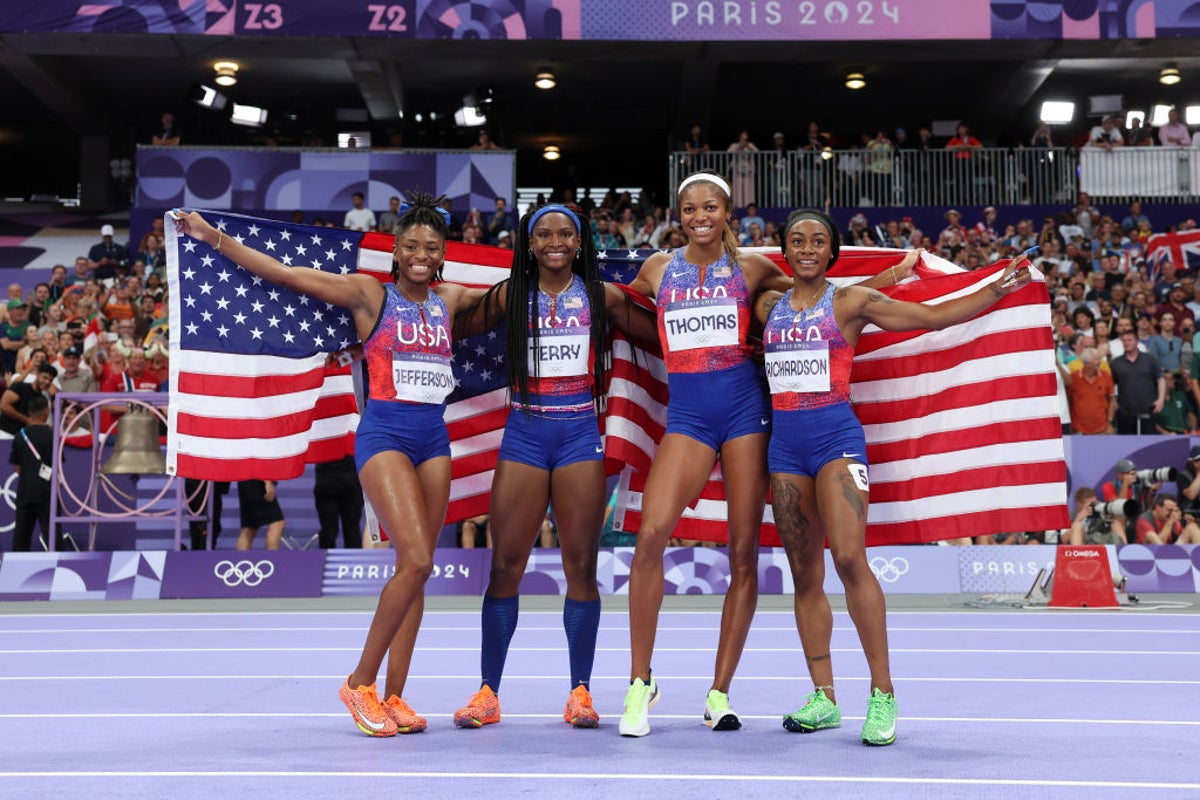
Support truly
independent journalism
The Olympic Games are at an end with the United States edging out China to top the medal table at Paris 2024 after a 17-day festival of sport.
The USA have now finished on top of the table at 19 of the 30 summer Olympics, including the very first in Athens in 1896, and six of the past seven stretching back to America’s home Games in Atlanta in 1996.
China punctured that streak in Beijing in 2008, and proved stiff competition again here, finishing on the same number of gold medals (40) as the US but being pushed into second having won fewer silvers.
Japan backed up their third place finish in Tokyo by taking the final podium spot in Paris while Australia’s 18 golds were enough to put them in fourth.
Despite Great Britain’s target of being the most successful European nation that honour went to Olympics hosts France who finished fifth while the Netherlands snuck ahead of Team GB on the final day to claim sixth. Britain ended the Games seventh, down three places from Tokyo, but the won more overall medals (65) than three years ago.
The Russian Olympic Commitee came fifth place in Tokyo, but there is no ROC this time after the country was banned due to its invasion of Ukraine, so a far smaller contingent of Russian athletes will compete as neutral athletes (AIN), and they have not been counted on the medal table.
How is the medal table ranked?
The medal table is officially ranked by the International Olympic Committee based first on the number of gold medals won by each nation. Where nations are tied on the same number of golds, silver medals are used to rank them, and then again by bronze if the total silvers are level.
The ranking method has been a point of contention in years gone by, with some countries electing to sort by total medals when the statistics suit them. The American media has often presented the table by total medals in order to place the USA on top.
Chinese media tried to claim glory in Tokyo three years ago by adding the medals won by Hong Kong and Taiwan to its tally.
What does AIN mean?
AIN stands for Athlètes Individuels Neutres (individual neutral athletes) and is the banner under which Russian and Belarusian athletes will compete. Both countries were banned from the Olympics following the Russian invasion of Ukraine.
In a statement, the International Olympic Committee said: “No flag, anthem, colors or any other identifications whatsoever of Russia or Belarus will be displayed at the Olympic Games Paris 2024 in any official venue or any official function.”







